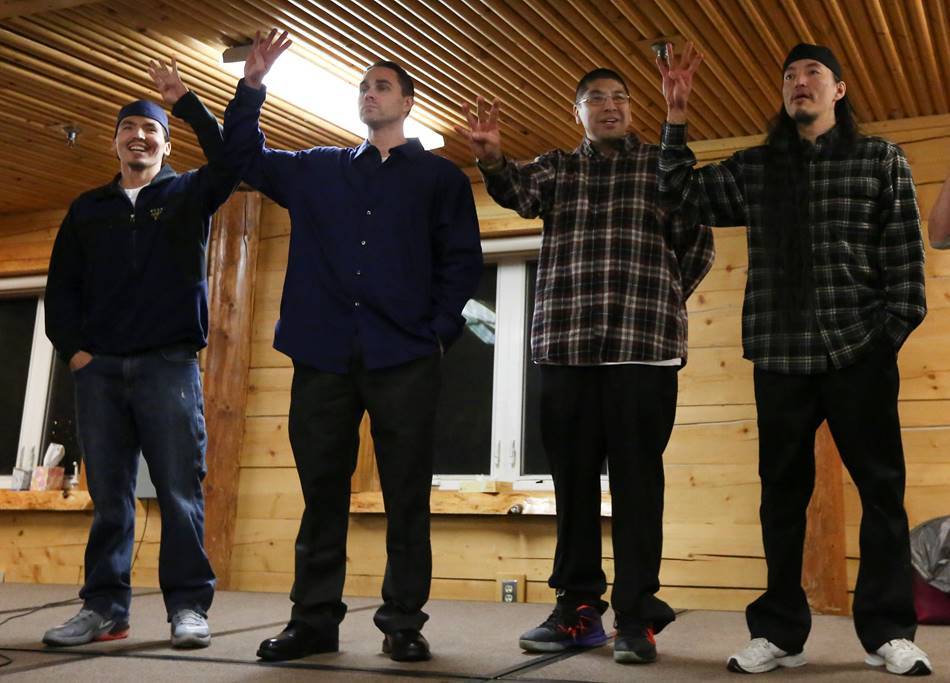Almost two years after their release from prison, four wrongfully imprisoned Alaska men are still influencing the actions of the state’s top officials.
In a 38-1 vote Monday morning, the Alaska House of Representatives approved a bill that will restore the Permanent Fund Dividends of Alaskans who are convicted of a crime but have those convictions later overturned.
The sole “no” vote came from Rep. Mark Neuman, R-Big Lake.
House Bill 127, sponsored by Rep. Scott Kawasaki, D-Fairbanks, goes to the Senate for further consideration.
“There are currently people in our jail system that I believe are innocent,” Kawasaki said in a speech before the vote.
Speaking on the House floor, Kawasaki pointed out that Alaska’s longtime U.S. Senator Ted Stevens was convicted of a federal crime, only to see his conviction overturned because of prosecutorial misconduct.
In debate and discussion before Monday’s vote, it wasn’t Stevens who came to mind. It was the Fairbanks Four – Eugene Vent, George Frese, Marvin Roberts and Kevin Pease – who were released from jail in 2015 after being wrongfully imprisoned for a 1997 murder.
Under state law, the dividends of convicted Alaskans are garnished. The convicts never get that money, even if their conviction is later overturned.
After the Fairbanks Four were released, then-Rep. Bob Lynn, R-Anchorage, introduced a bill in early 2016 to reverse that garnishment for people who had convictions thrown out.
“It brought the situation to my attention,” he told the Associated Press at the time. “It’s about fairness. It’s about equality. The state screwed up, and the state needs to fix it.”
The bill didn’t pass the Legislature in 2016, so Kawasaki introduced it this year.
“It’s really for all people who are wrongfully incarcerated, wrongfully imprisoned, whose charges later become dismissed and vacated,” he said.
Kawasaki staff said there is no accurate accounting of how many additional cases might be covered by the bill, but it would not be more than 20.
The total cost of the bill would depend on the length of each overturned sentence, not just how many cases would apply.
In 2016, the state estimated the bill for the Fairbanks Four alone would result in payments of $27,000 for each man.
Under HB 127, the payments would come out of the state’s reserve for prior-year dividends, an already-existing account that is used to pay people who erroneously failed to receive a dividend.
The bill heads to the Senate, and though the Legislature is still in session (and likely will be for some time), it isn’t clear whether the Senate will consider it this year because most Senate committees have all but shut down.
Kawasaki said he still hopes the Senate will see the need to move rapidly on HB 127.
It isn’t a bill about compensation, he said on the floor, but about giving Alaskans a right they would have had without the state’s mistake.
“It will never be able to compensate a person for the life that they spent in prison, behind bars wrongfully, but it will go a long way in allowing them … a fresh start,” he said.
• Contact reporter James Brooks at james.k.brooks@juneauempire.com or call 419-7732.

